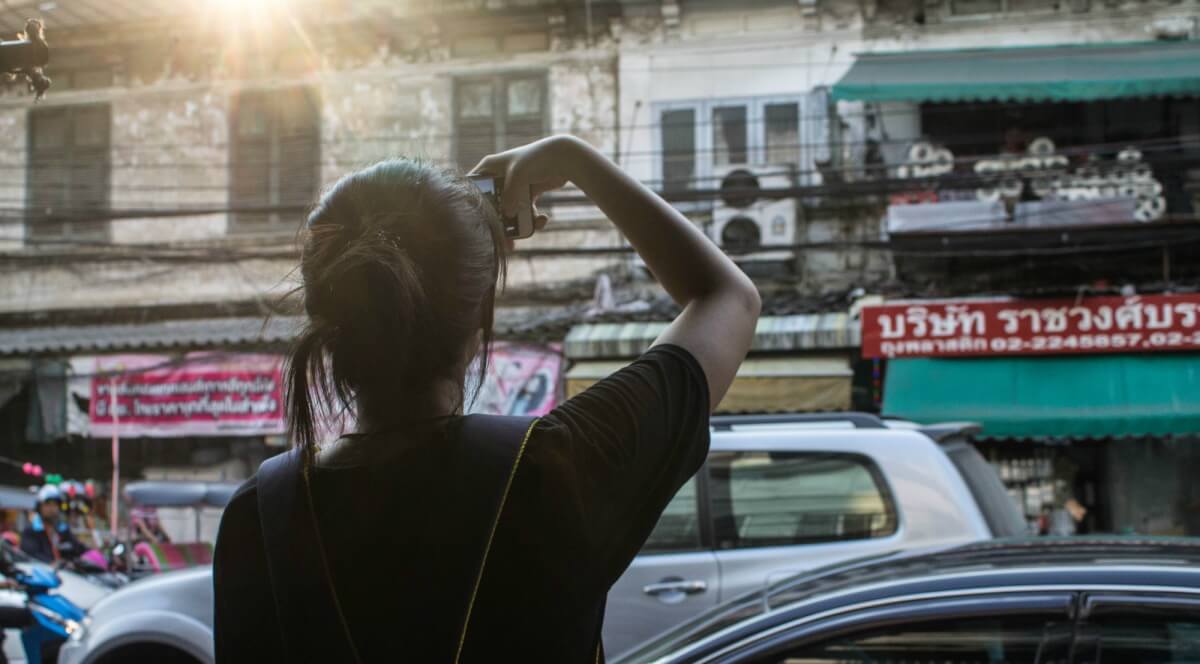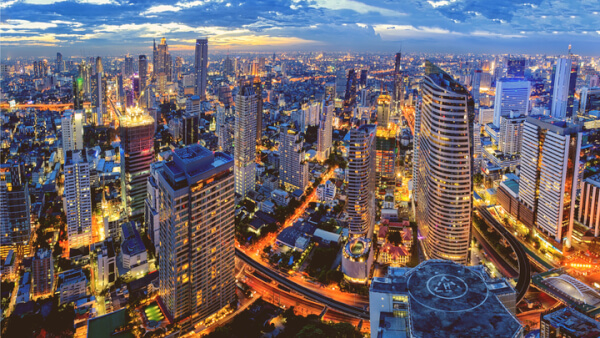Taking cash in or out of Thailand? Read this.
Most countries have checks in place to control the amount of cash that travellers can bring in, and take out. These are designed to do a number of things -...

Thailand is a hotbed for tourists from abroad. If you’re traveling from the US, Britain, or Australia, there are usually no compulsory vaccinations required before you visit the country. That said, if you’re visiting Thailand on holiday, you still want to be prepared for exposure to new climates, foods, and bacteria. You can take certain measures to strengthen your system against contracting infectious disease. Here’s what you need to know before you go.
Immunisation is the overall process of making your body more immune to a certain disease. The process consists of exposing yourself to a small dose of the disease through a shot or jab usually administered in your arm, leg, or other substantial body part. The vaccine is contained in that shot, and it will go into your body and help it develop antibodies that fight against that disease. This immunisation process essentially trains your body to adapt to fighting a certain disease, so that when you encounter it in real life, you’re ready. Some immunisations occur over time, through several rounds of shots of a vaccine. Some only require one visit to the doctor or clinic.
The process of vaccinating large swathes of the population is now a proven method for fighting the spread of infectious disease. Some countries require certain vaccines for foreign visitors, because the risk of disease-contraction is so high. Other countries don’t require them for foreigners, but will still recommend them.
When you travel, you expose yourself to unfamiliar diseases and bacteria. You may not be used to the climate, the temperatures, the food, and the wildlife you’ll encounter. Vaccinations help you fight that vulnerability by making you stronger. When you’re first exposed to these unfamiliar elements in a controlled way, your body develops coping methodologies for self-protection.
Vaccinations also protect the people around you, once you return home from your trip. You don’t want to carry a disease back home with you and spread it to your community. So think of getting vaccinated as an altruistic act that protects those in your community with weaker immune systems, like newborns and the elderly.
Thailand has recently noted cases of Middle East respiratory syndrome coronavirus (MERS-CoV). Common symptoms of this disease, which is still quite mysterious, include fever, cough, pneumonia, and shortness of breath. The disease is very dangerous but can be treated in an isolation ward.
Thailand is also known as one of the 22 countries that has a high tuberculosis (TB) burden. Health personnel are trained to diagnose and treat TB, but it’s still a good reason to be up-to-date on your normal course of vaccinations before you enter the country.
Just like most climates with mosquitoes, Thailand has seen cases of mosquito-borne Zika virus. If you’re pregnant or trying, you might want to put off your trip to Thailand until afterwards. Pregnant women are especially vulnerable to the risks of Zika, which can cause serious birth defects. Protect yourself against Zika in the same way you protect yourself against mosquitoes - by wearing long sleeves, using bug spray, and sleeping with air conditioning. Zika can also be contracted sexually, so use protection during and directly after your trip.
Make sure to generally practice careful hygiene in Thailand. Even if you’re eating, drinking, and sleeping in nice hotels, you’re still vulnerable to disease. So wash your hands frequently, don’t eat undercooked food, avoid tap water, avoid mosquitoes, and bring a small medical kit for emergencies.
You’ll usually want to get organised six weeks before your trip. Visit your doctor and make sure you’re up-to-date on all your vaccinations. You’ll usually need to be vaccinated within four weeks of your trip.
Unless otherwise advised, you’re not required to obtain vaccinations for Thailand if you’re British, American, or Australian. But, some vaccinations are recommended, depending on your situation. Some regions, itineraries, and times of the year can contribute to falling ill. Think about looking into the following vaccinations:
| Vaccine / shot | Required for any nationality? | Recommended For... | Reason |
|---|---|---|---|
| Typhoid | no | Most travelers | Contaminated food or water can carry typhoid in all parts of Thailand |
| Hepatitis A | no | Most travelers | Contaminated food or water can carry Hepatitis A in all parts of Thailand |
| Japanese Encephalitis | no | Some travelers visiting Chiang Mai Valley, resort areas in coastal southern regions | Japanese Encephalitis reaches peak season in May-October in the north and can be found year-round in the south. Strongly suggested if you stay for over a month. |
| Rabies | no | Some travelers who will be outdoors | Rabies isn't a risk for most travelers, but consider vaccinating if you’ll be around dogs, bats, and other mammals in Thailand |
| Cholera | no | Some travelers visiting remote areas where cholera is a risk, like relief workers and health professionals | Some parts of Thailand have a risk of cholera, although most people aren’t likely to visit these areas. |
| Hepatitis B | no | Some travelers who may be exposed to needles, blood, or have sex with a new partner | Consider it if you plan on sex with a new partner, are undergoing a medical procedure, or are getting a tattoo or piercing |
| Malaria | No | Some travellers, especially those sleeping outside or spending a lot of time outdoors | Malaria pills aren’t usually required for visitors to Thailand, but avoid mosquitoes to lower risk |
| Yellow Fever | Yes, for anyone coming from these countries | Some travelers who are coming from places vulnerable to yellow fever | Thailand does not have risk of yellow fever, but the government requires proof of vaccination if you’re coming from a country with yellow fever risk (except for the US) |
Thailand is temperate throughout the year, but the cooler, drier season lasts from November through early April. The south is drier in winter months, with the lowest rainfall being in January and February, and the highest in November. Drier weather reduces the likelihood of falling ill, as it’s not germs’ or bacterias favourite environment. While you’ll never completely avoid them, plan to go in winter to lower the risk of disease contraction.
Because Thailand is so tourist-friendly, you’ll have options if you get sick or in case of an emergency. Following are some useful phone numbers and websites you can try:
Millions of tourists visit Thailand each year, and most of them make it through their time without major problems. While traveling is never risk-free, if you’re careful and know what you’re in for, you’re more likely to be safe throughout your trip.
*Please see terms of use and product availability for your region or visit Wise fees and pricing for the most up to date pricing and fee information.
This publication is provided for general information purposes and does not constitute legal, tax or other professional advice from Wise Payments Limited or its subsidiaries and its affiliates, and it is not intended as a substitute for obtaining advice from a financial advisor or any other professional.
We make no representations, warranties or guarantees, whether expressed or implied, that the content in the publication is accurate, complete or up to date.

Most countries have checks in place to control the amount of cash that travellers can bring in, and take out. These are designed to do a number of things -...

Thailand’s vibrant capital is one of the world’s most visited holiday destinations.Over 15 million international tourists flock to Bangkok every year to see...

Are you travelling to Thailand for your dream holiday? If so, you may be worried about where to get a good deal on Baht (Thai currency). While ATMs are...

Thailand, “The Land of Smiles”, is known for its warm welcome of tourists from all over the globe. Between stunning scenery, exotic culture and rich...